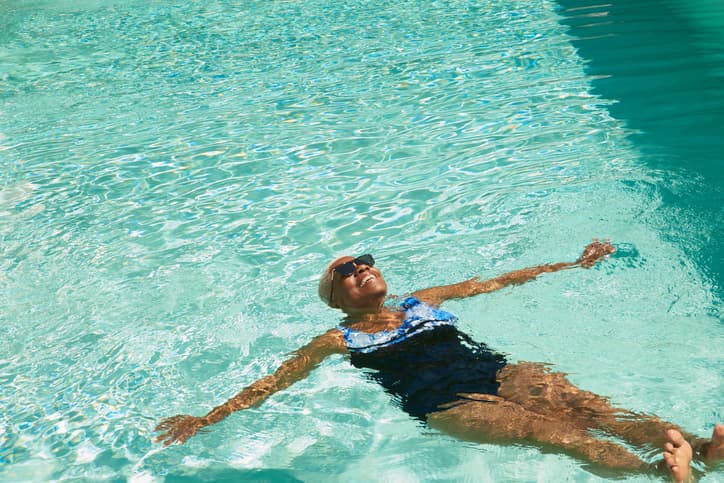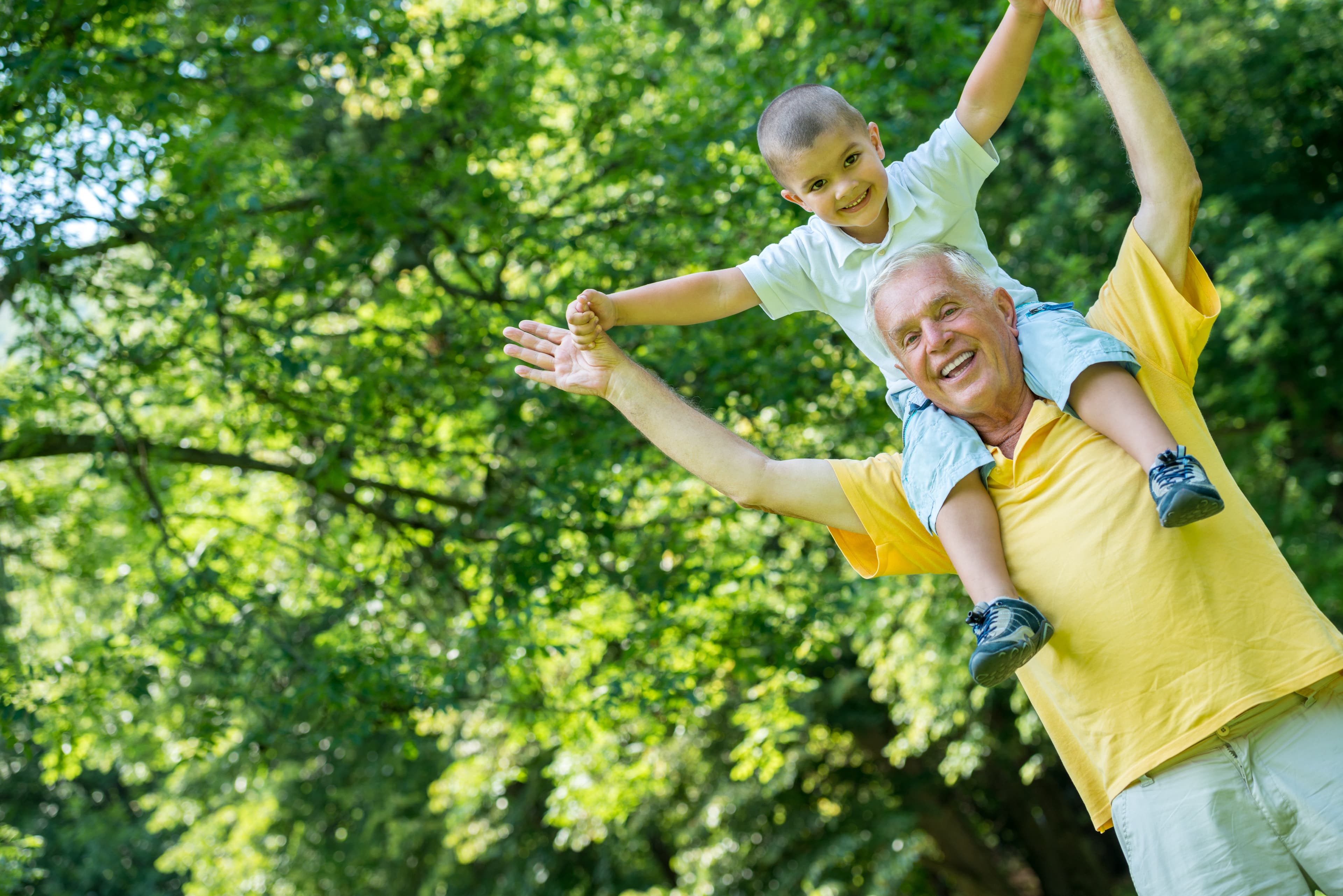Sunburn Prevention and Treatment: Tips for Caregivers and Recommended Products

Written by Chad Birt on Mon Jul 25 2022.

Sunburns are one of the most common skin problems, affecting more than 1 in 3 Americans annually. While sun damage can occur any time of year, it’s most common during the summer, because of the long days and higher temperatures.
As a family caregiver, outdoor excursions can leave you feeling torn. After all, getting outside is good for your care recipient’s mental health and helps boost the production of vitamin D. At the same time, exposure to the sun’s ultraviolet (UV) rays increases the risk of skin and eye damage.
Thankfully, there’s plenty you can do to protect your loved one’s skin and vision. Below, we highlight the risks of sun exposure, provide some preventive tips, and share a link to some of our favorite sun protectant skincare products.
What is a sunburn?
A sunburn is a type of skin damage caused by exposure to the sun’s ultraviolet (UV) rays. When you spend time outside without adequate UV protection, the sun’s rays trigger premature aging, affecting the appearance and texture of your skin.
Even if your skin doesn’t burn, frequent exposure increases the risk of wrinkles, fine lines, and age spots. Not to mention, UV rays harm the eyes, damaging your vision.
What are the symptoms of sunburn?
The symptoms of sunburns vary depending on the severity of the skin damage. Still, there are telltale signs to watch out for:
“Sunburns cause reddening, burning sensations, itching, peeling, and blisters,” said Rosmy Barrios, MD, a doctor of aesthetic medicine and cosmetology, and a medical advisor at Health Reporter. “Sunburns may also cause feelings of exhaustion or dehydration.”
In addition to these immediate symptoms, “sunburn is shown to increase the risk of skin cancer, also known as melanoma,” said David Culpepper, MD, an internal medicine physician with more than 30 years of experience and the clinical director at LifeMD.
“Studies have shown that even one blistering sunburn in childhood or adolescence doubles the chances of skin cancer later in life. This risk increases with every subsequent sunburn.”
How can I reduce my care recipient’s risk of sunburn?
Older adults and children have very sensitive skin, but there are things you can do as a family caregiver to prevent sunburns, including:
Stay inside during the heat of the day
One of the easiest ways to prevent sunburn is to avoid going outdoors during the hottest part of the day.
“The risk of sunburn is highest when the sun is overhead, roughly 10 AM to 4 PM,” Dr. Culpepper said. “However, during the summer, when the sun is out longer, this window of sunburn risk can start earlier and end later.” If you have to go outside during peak sunlight, bring water and stay in the shade.
Wear sunscreen and regularly apply it
“If you want to protect your children and loved ones from sunburn, sunscreen is non-negotiable,” Dr. Barrios said. “Remember to reapply sunscreen every two hours and immediately after swimming or sweating.”
All sunscreen has a sun protection factor (SPF) rating. The higher a product’s SPF, the more protection it provides from the sun’s UV rays. SPFs range from between 10 and 100. The American Cancer Society recommends wearing sunscreen with an SPF of 30 or higher.
Wear appropriate clothing
In addition to applying sunscreen, make sure your care recipient wears appropriate clothing. While it might seem counterintuitive, long-sleeved shirts and pants are best. Choose garments in dark colors, like navy blue or black, as they offer more protection than white.
If you’re spending time at the beach or pool, change out of wet clothing immediately. Though comfortable, wearing a damp shirt increases your exposure to the sun’s UV rays.
Don’t forget to protect your loved one’s head and neck with a wide-brimmed sun hat or an umbrella. Sunglasses are also a must; UV exposure increases the risk of vision problems, like cataracts and macular degeneration.
Prepare healthy meals and snacks
Believe it or not, good nutrition can help keep your loved one’s skin healthy.
“If you want to go the extra mile, include more avocados, tomatoes, and oats in your care recipient’s diet,” Dr. Barrios said.
“Avocados are rich in vitamin A, which helps cells regenerate, and vitamin E, which fights the aging process. The vitamin C in tomatoes improves collagen production, which maintains skin elasticity, strengthens tissues, and helps the skin regenerate. Finally, oats contain silica and zinc which also improve collagen production.”
Do sunburns require a trip to the doctor?
Most sunburns are mild and respond to at-home treatment. Even so, some require professional intervention.
“See a doctor for sunburn if it’s severe and covers a large area of the body,” Dr. Culpepper said. “Or if the burn is accompanied by dehydration, nausea, chills, or severe pain.”
How can I minimize the symptoms of a sunburn?
If your care recipient gets sunburned, there are several things you can do to provide relief, including:
Apply aloe vera gel
Aloe vera gel is a soothing and cooling substance derived from the aloe vera plant. It helps your skin retain moisture and eases inflammation.
“The best remedy for a sunburn is to apply aloe vera,” said Dr. Culepper. To ensure lasting results, “look for pure aloe vera that doesn’t contain alcohol.”
Take over-the-counter pain medicine
“Nonsteroidal anti-inflammatory drugs (NSAIDs) such as ibuprofen, reduce pain and inflammation,” Dr. Culpepper said.
Stay hydrated
A sunburn draws moisture to the skin, increasing the risk of dehydration. Help your loved one stay hydrated by encouraging them to drink water at regular intervals.
Soak in a cool tub or rinse off in the shower
Sunburns make your skin feel hot and dry. Taking a cool bath or shower can relieve inflammation and pain. Apply a moisturizer to your loved one’s skin when they dry off to maximize the benefits.
Where can I buy sun protection?
Here at Carewell, we carry various products that prevent and treat sunburn. Whether you're a new parent or an experienced caregiver, we can help protect your loved one's skin.
If you have questions about sun protection or need help finding the right sunscreen or aloe vera product, please contact our Care Specialists by sending an email to support@carewell.com or calling (800) 696-CARE.
Other Articles You May Like

Hydration Tips for Seniors
Dehydration affects between 17-28% of older Americans. While dehydration can occur any time of year, it’s especially common during the summer months, when the days are longer, the temperatures are hotter, and the humidity is higher. In this article, we provide some tips, tricks, and recommendations for proper hydration.
Read More >
The Best Caregiving Items for a Stress-Free Summer of 2025
The summer season is about getting outside, relaxing, and spending time with family and friends. But for seniors, the heat and humidity can present potentially serious risks. Fortunately, there are a variety of products designed to make seasonal caregiving easier. To mark the summer solstice, we've highlighted several in our latest article.
Read More >
Chad Birt is a freelance medical writer who resides in Astoria, Oregon. When he isn't behind a keyboard, you can find him hiking, camping, or birdwatching with his wife Ella and their two dogs, Diane and Thoreau.